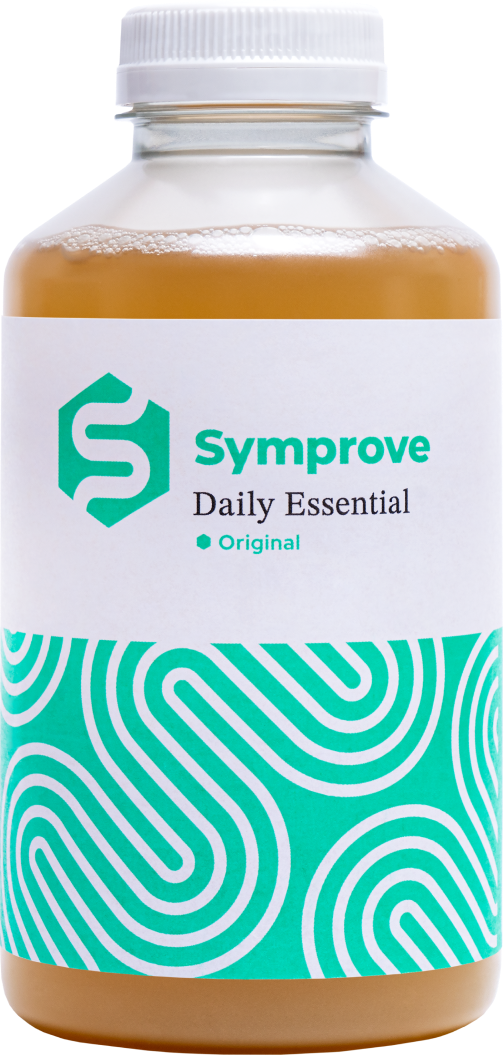The influencer
Invisible to the naked eye but as crucial to our health as other major organs, the gut microbiome is a dynamic ecosystem which influences many physiological processes in the body, including digestion, immune function and even the stress response. One lesser-known connection under investigation is a relationship between the gut, its microbes and the menstrual cycle. So what do we know so far?
Cycle basics
First, a quick recap on the biology of the menstrual cycle. The average cycle lasts 28 days and involves two phases – the follicular phase and the luteal phase. Both are controlled by hormones and separated by ovulation.
The follicular phase begins on day one of each menstrual bleed and lasts until ovulation. During the follicular phase, oestrogen levels rise causing the lining of the uterus to thicken. About mid-way through the cycle oestrogen peaks, causing a surge in luteinising hormone, which triggers ovulation – and an egg is released.
Post ovulation, the luteal phase begins. Progesterone levels rise supporting early pregnancy if an egg is fertilised. In the absence of a pregnancy, progesterone and oestrogen levels fall, this sets the next menstrual bleed in motion, and the cycle begins again. So, how is the gut associated with this carefully synchronised cycle?
Cyclical clues
One clue comes from the observation that about a third of otherwise asymptomatic women experience cyclical changes in gut function and bowel habits associated with their menstrual cycle. For example, loose stools and bloating are commonly reported with the onset of menses. This association is even more pronounced in women with IBS, with up to 40% reporting a worsening of their IBS symptoms during menstruation.
These cyclical changes in gut function and symptomatology are thought to be related to fluctuating levels of oestrogen and progesterone which occur throughout the menstrual cycle. Clinical evidence suggests that both hormones affect gastric motility and gut permeability via receptors in the gut.
In addition, oestrogen is known to module visceral sensitivity, which is characteristic of irritable bowel syndrome. This has led some researchers to hypothesise that sex hormones (particularly oestrogen) are the reason IBS is twice as common in women than men. Similarly, the decline in IBS incidence in older women may be related to the natural fall in oestrogen associated with menopause.
Microbes and hormones
Fascinatingly, oestrogen and the gut microbiome appear to be under reciprocal influence. Oestrogen is primarily produced by the ovaries, and circulates through the body before being delivered to the liver where it is inactivated. It is then sent on to the intestine where it is eventually excreted in stools.
However, some gut microbes (collectively known as the estrobolome, a word first coined in 2011) are capable of metabolising and reactivating oestrogen via secretion of an enzyme known as beta-glucuronidase. Once activated, oestrogen can re-enter the circulation and bind with oestrogen receptors.
In return, oestrogen-like compounds have been shown to promote the growth of certain strains of beneficial microbes, whilst suppressing other harmful strains, helping to maintain homeostasis.
Although more research is needed, this synergy between oestrogen and the gut microbiome has led some researchers to theorise that microbiome dysbiosis may disrupt oestrogen metabolism, paving the way for oestrogen-related pathologies such as endometriosis and ovarian cancers.
Microbes and the menstrual cycle
Scientists are also yet to establish how cyclical changes in oestrogen levels during the menstrual cycle affect the gut microbiome and vice versa, although we might soon find out. In 2018, the University of Vienna registered a clinical trial to investigate changes in the gut microbiome and the expression of β-glucuronidase during the menstrual cycle.
Cyclical alterations in the gut microbiome may be associated with premenstrual syndrome (PMS) too. At the end of last year, scientists from Monash University and The Hudson Institute began recruiting volunteers to determine whether changes in the gut microbiome across the menstrual cycle underpin premenstrual syndrome. Interestingly they also plan to investigate whether a supplement designed to promote the growth of beneficial bacteria might improve PMS symptoms.
The future
Although more research is needed, the relationship between the microbiome, hormones and the menstrual cycle holds exciting therapeutic potential. And, as our understanding evolves, we may see a role for therapies which target the gut microbiome as a way of impacting PMS or oestrogen-related health conditions.
References
Hawkins, S. M., & Matzuk, M. M. (2008). The menstrual cycle: Basic biology. Annals of the New York Academy of Sciences. https://doi.org/10.1196/annals.1429.018
Bharadwaj, S., Barber, M. D., Graff, L. A., & Shen, B. (2015). Symptomatology of irritable bowel syndrome and inflammatory bowel disease during the menstrual cycle. Gastroenterology Report, 3(3), 185–193. https://doi.org/10.1093/gastro/gov010
Baker, J. M., Al-Nakkash, L., & Herbst-Kralovetz, M. M. (2017). Estrogen–gut microbiome axis: Physiological and clinical implications. Maturitas, 103(June), 45–53. https://doi.org/10.1016/j.maturitas.2017.06.025
Chen, K. L., & Madak-Erdogan, Z. (2016). Estrogen and Microbiota Crosstalk: Should We Pay Attention? Trends in Endocrinology and Metabolism, 27(11), 752–755. https://doi.org/10.1016/j.tem.2016.08.001
Mulak, A., Taché, Y., & Larauche, M. (2014). Sex hormones in the modulation of irritable bowel syndrome. World Journal of Gastroenterology, 20(10), 2433–2448. https://doi.org/10.3748/wjg.v20.i10.2433
NIH. (2018). The Relationship of the Intestinal Microbiome and the Menstrual Cycle. https://clinicaltrials.gov/ct2/show/NCT03581201
Hudson Institute for Medical Research. (2019). Reducing period pains with better gut health. https://hudson.org.au/latest-news/reducing-period-pains-with-better-gut-health/



